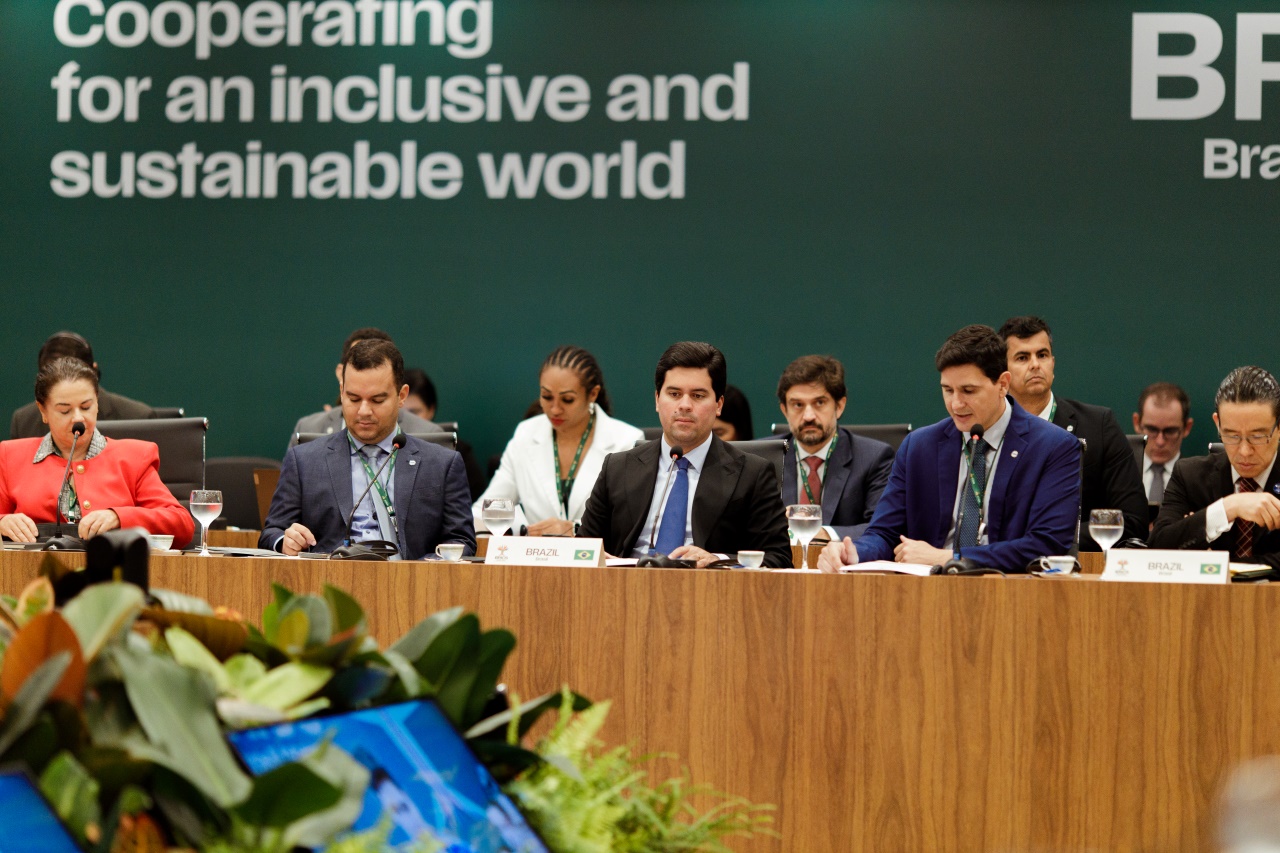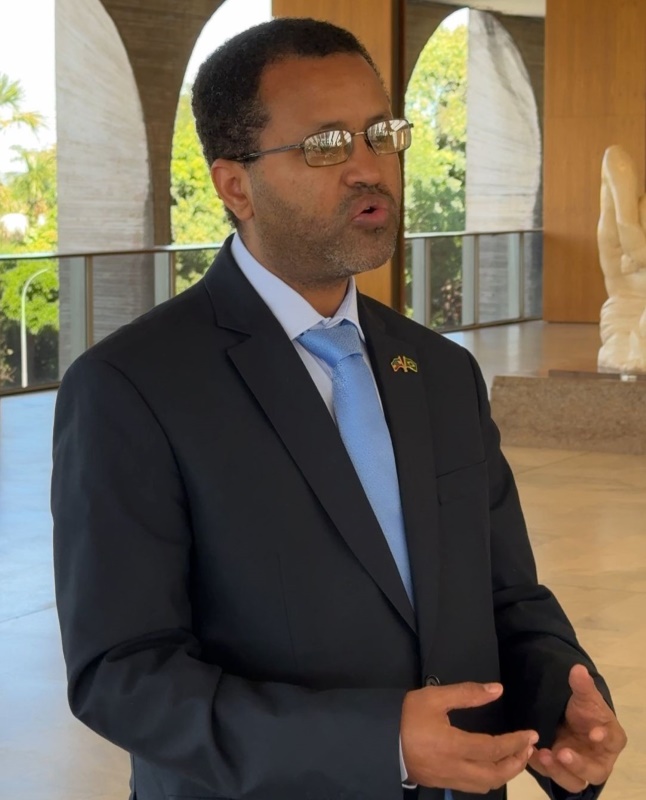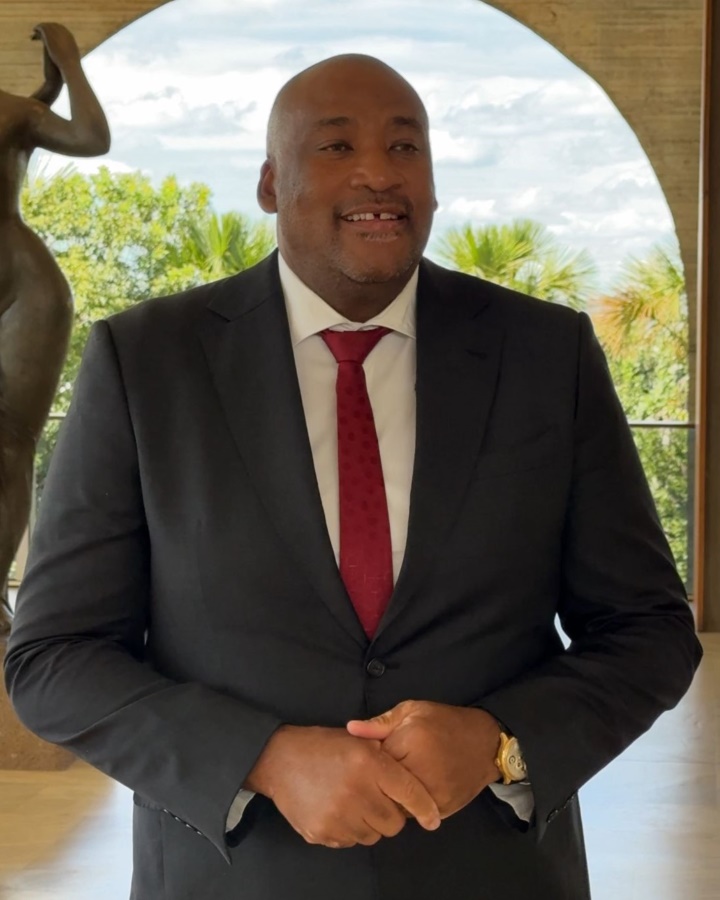BRICS Signs Landmark Sports Agreement to Tackle Inequality and Advance Social Inclusion
Ministers from BRICS nations endorse a historic memorandum framing sport as a tool for social transformation, with the potential to reduce inequality, foster inclusion, and drive economic development across member states

By Inez Mustafa | BRICS Brasil
BRICS Sports Ministers signed a Memorandum of Understanding on Cooperation in Physical Culture and Sports on Wednesday, June 4, advancing a shared agenda to integrate sport into public policy. The agreement, issued by Brasil’s Ministry of Sports, links athletic policy to broader social goals—including mental and physical health, social inclusion, and economic development.
“The memorandum we signed today is a testament of the commitment of new delegations, and to institutional maturity and mutual recognition. Sport is a vehicle for development, inclusion, social transformation, and the unity of peoples,” declared Brasil’s Minister of Sports, André Fufuca.
The memorandum reflects shared priorities and converging aspirations: it affirms ethical principles, defends sporting integrity, promotes inclusivity, and lays out a roadmap for cooperation among BRICS nations in the coming years. “To achieve these goals, it is essential that we invest in sports governance and the protection of our athletes, and that we prioritize transparency and promote the exchange of best practices,” Fufuca said. The minister added that, far an ending, this meeting was “a new beginning” for BRICS’ sports cooperation.

Click here to read the memorandum
Sports as a Bridge Between Nations
ETHIOPIA — Leulgesed Tadese Abebe, Ethiopia’s ambassador to Brasil, noted that the public policies under discussion stem from BRICS’ aim to foster a favorable environment for societies in member states to create such opportunities, particularly socioeconomic ones. “Developing sound strategies and concrete initiatives through public policy is essential to uniting all stakeholders, so that we can harness the power of sports for peace and inclusive development,” he added.
The ambassador added that sports play a crucial role in advancing all three pillars of the BRICS cooperation. “Sports promote peace and harmony between nations and societies; they are a powerful engine for job creation and economic prosperity. And just as importantly, sports foster mutual understanding, cultural exchange, and friendship. BRICS is all about building friendships, strengthening partnerships, and encouraging mutual respect,” he said.
SOUTH AFRICA — In Gayton Mackenzie’s eyes, the Minister of Sports and Culture in South Africa, the memorandum provides BRICS countries with a cohesive, coordinated policy framework—one that promotes fair and equitable access to sport. “Sports is the greatest unifier and most powerful contributor to a socially cohesive nation. It transforms lives, communities, and countries—but most of all, it changes how people perceive one another,” he said.

The Minister explained that sports are a tool for social transformation— serving not merely as entertainment, but as a form of identity-building. In post-apartheid South Africa, sports helped forge a unified national identity, providing a shared language transcending racial and social divides in line with Nelson Mandela’s vision. “It is important for sports to be used not only for entertainment, but also to unify people and raise social awareness on the fact that we are one nation,” he concluded.
Athlete Grant
In his opening remarks, Minister Fufuca highlighted the Bolsa Atleta (Athlete Grant) program as a crucial tool for reducing dropout rates in sports, democratizing access to training resources, and enhancing Brasil’s competitiveness in international events. Created in 2004, the direct financial assistance program was launched to fill a critical gap in support for Brazilian athletes. “It addresses a longstanding need for State-backed support in sports,” the Minister stated.
In 2023, after 14 years of budget freeze, the Bolsa Atleta grants were finally readjusted. According to Fufuca, 100% of Brazilian Olympic and Paralympic medalists at the 2024 Paris Games received support through the program. “The program currently supports over 10,000 athletes, with monthly stipends ranging from 1,000 to 15,000 reais. In 2025, we invested 176 million reais to support Brazilian athletes,” he said.
English version by Judas Tadeu de Azevedo Neto (UFC)
Proofreading by Enora Lessinger (POET/UFC)